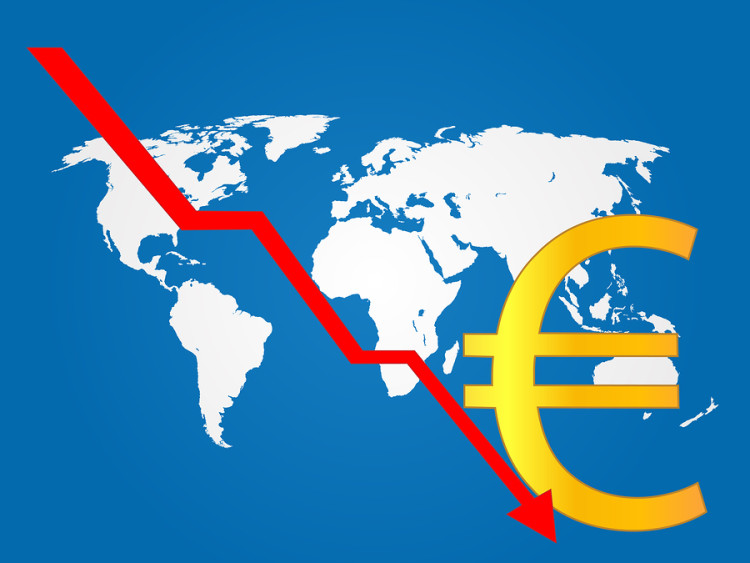Euro Slides as Exit Polls Show Italy Voted ‘No’ in Referendum

published Dec 4th 2016, 4:14 pm, by Chiara Albanese
(Bloomberg) —
The euro fell as exit polls showed a lead for the “no” campaign in Italy’s constitutional referendum.
The single currency slid against all of its 16 major peers as investors gauged whether the vote could upset the nation’s political stability, given Prime Minister Matteo Renzi had signaled he would step down on a loss. Were the result to trigger early elections or a cabinet reshuffle, any future government would still have to deal with the country’s beleaguered banks and fragile economy.
Renzi’s plans to rein in the power of the Italian Senate were rejected by 57 percent to 43 percent, according to a survey by EMG. Exit polls have at times proved unreliable in Italy, underestimating Renzi’s 2014 victory in European elections by 10 percentage points.
“Expect volatility premiums to rise and the euro to trade below $1.05 against the dollar, potentially testing last year’s low of $1.0460 in a ‘no’ vote scenario,” Petr Krpata, ING Groep NV’s London-based chief foreign-exchange strategist for Europe, Middle East and Africa, said before the referendum. “While the market is positioning for the risk of ‘no’ vote outcome, a knee-jerk reaction is still likely to be a lower euro” as it would “underline the upcoming risk” of other elections in Europe.
The euro slid 0.7 percent to $1.0590 as of 11:09 p.m. Rome time. It touched $1.0518 on Nov. 24, the lowest since March 2015.
A “no” vote mean that Italy’s government bonds, which have been the euro zone’s worst performers in the past six months, may open lower Monday. The nation’s benchmark FTSE MIB Index of shares, which has dropped about 20 percent this year may extend its decline.
While the referendum has raised concerns over Italy’s future in the euro-region, the nation’s political and legal system mean a “no” vote is unlikely to trigger a quick exit.
“If the referendum is rejected, this is not the end of the world,” Fabio Fois, a London-based economist at Barclays Plc, said before the vote. “Bicameralism will remain, but what really matters is the government attitude to press ahead with reforms.”
Why Italian Vote Unlikely to Mean Swift Euro Exit: QuickTake Q&A
The euro weakened 3.6 percent against the dollar in November, its biggest monthly decline in a year, weighed down by political uncertainty in the region and the prospect of the European Central Bank extending its stimulus measures this week. Moves were exacerbated as the dollar strengthened on increasing bets the Federal Reserve will raise interest rates this month after Donald Trump’s win in the presidential election spurred speculation of expanded fiscal spending. In fixed-income markets, the yield premium demanded by investors for owning the nation’s 10-year bonds instead of benchmark German bunds surged on Nov. 28 to the most since June 2015, before rebounding last week as Italian stocks also gained. Still, holders of Italian government debt lost 2.1 percent in the past six months, according to the Bloomberg Italy Sovereign Bond Index.
–With assistance from Aleksandra Gjorgievska and Anooja Debnath. To contact the reporter on this story: Chiara Albanese in Rome at calbanese10@bloomberg.net To contact the editors responsible for this story: Ven Ram at vram1@bloomberg.net Keith Jenkins, David Goodman
copyright
© 2016 Bloomberg L.P







No Comment